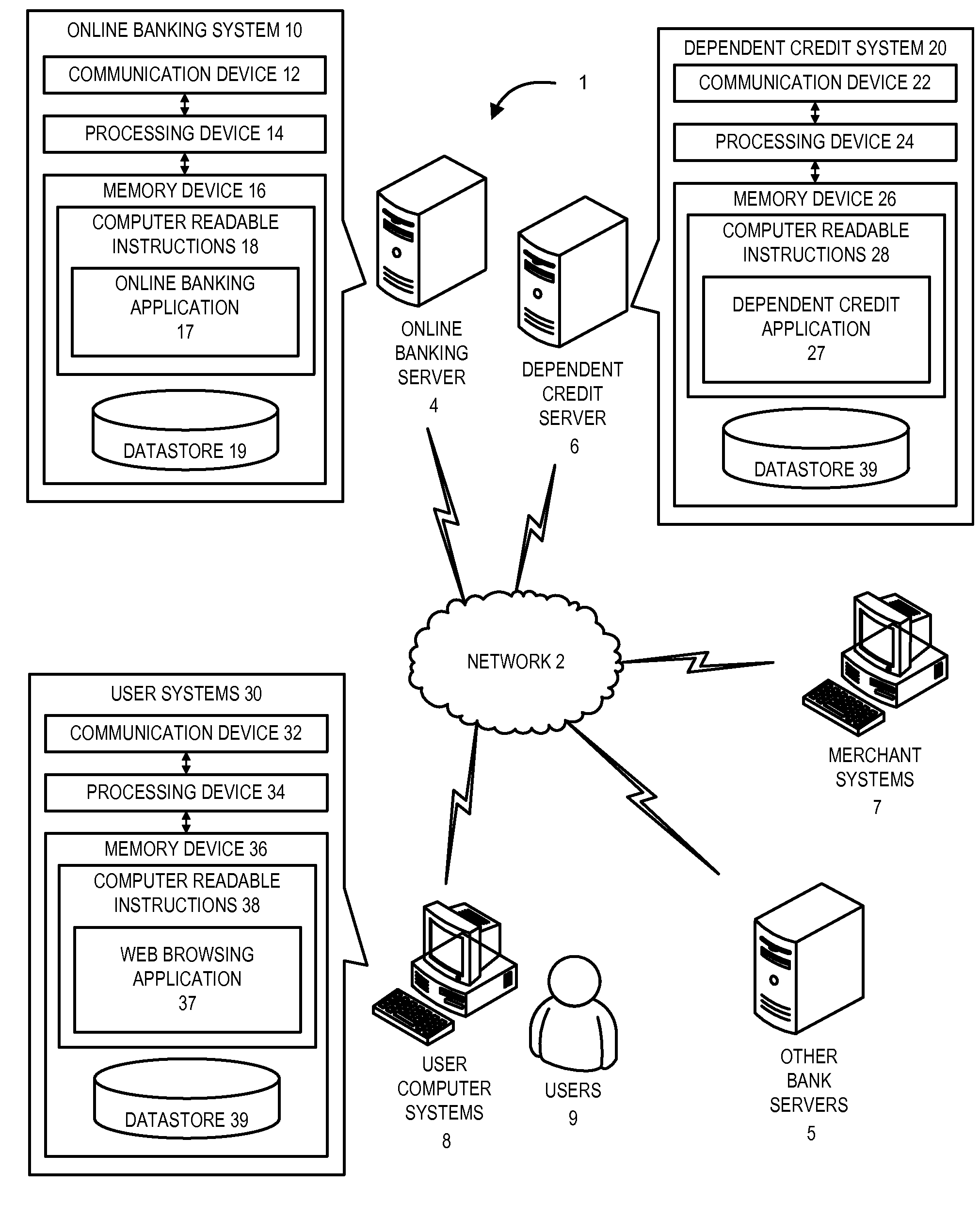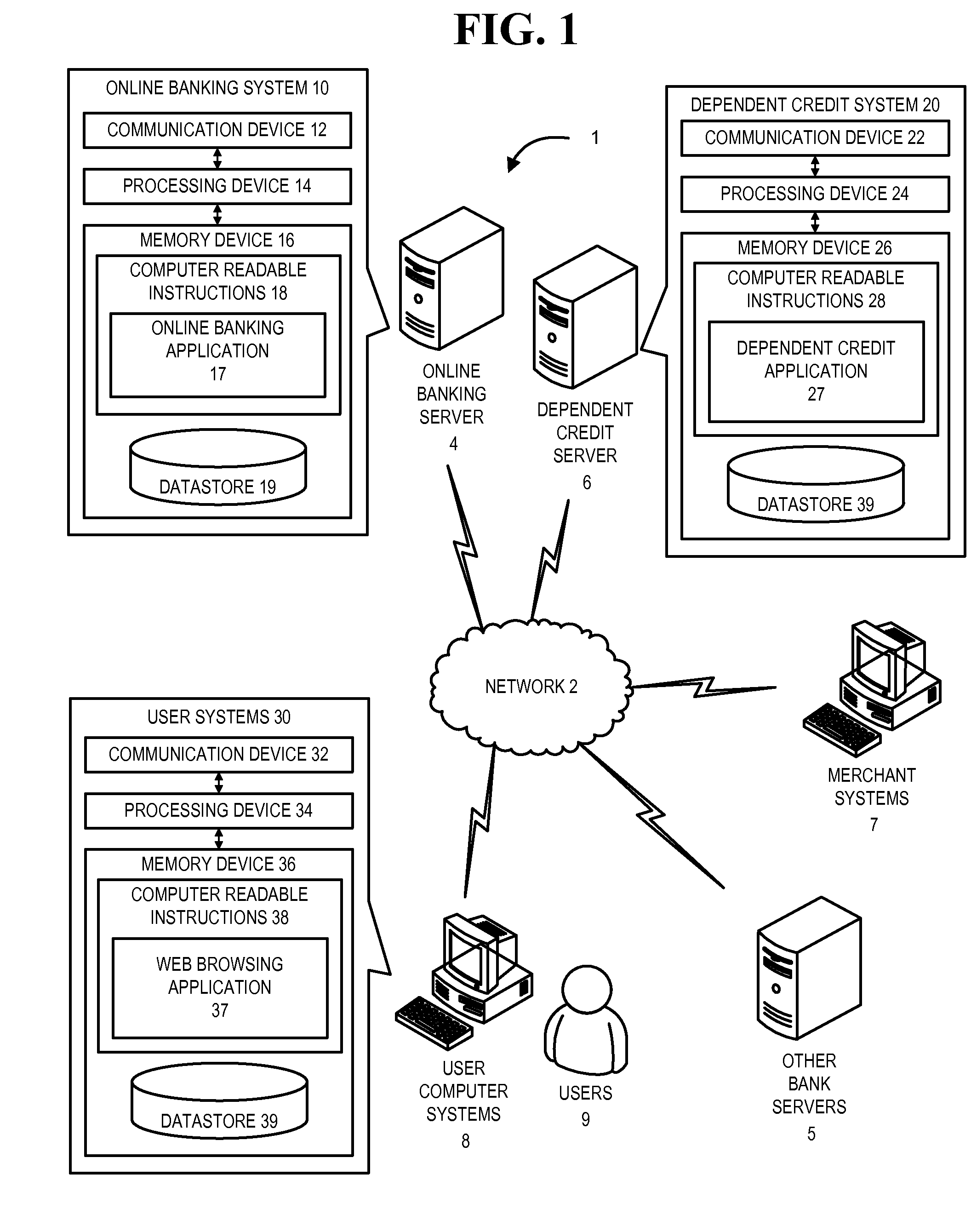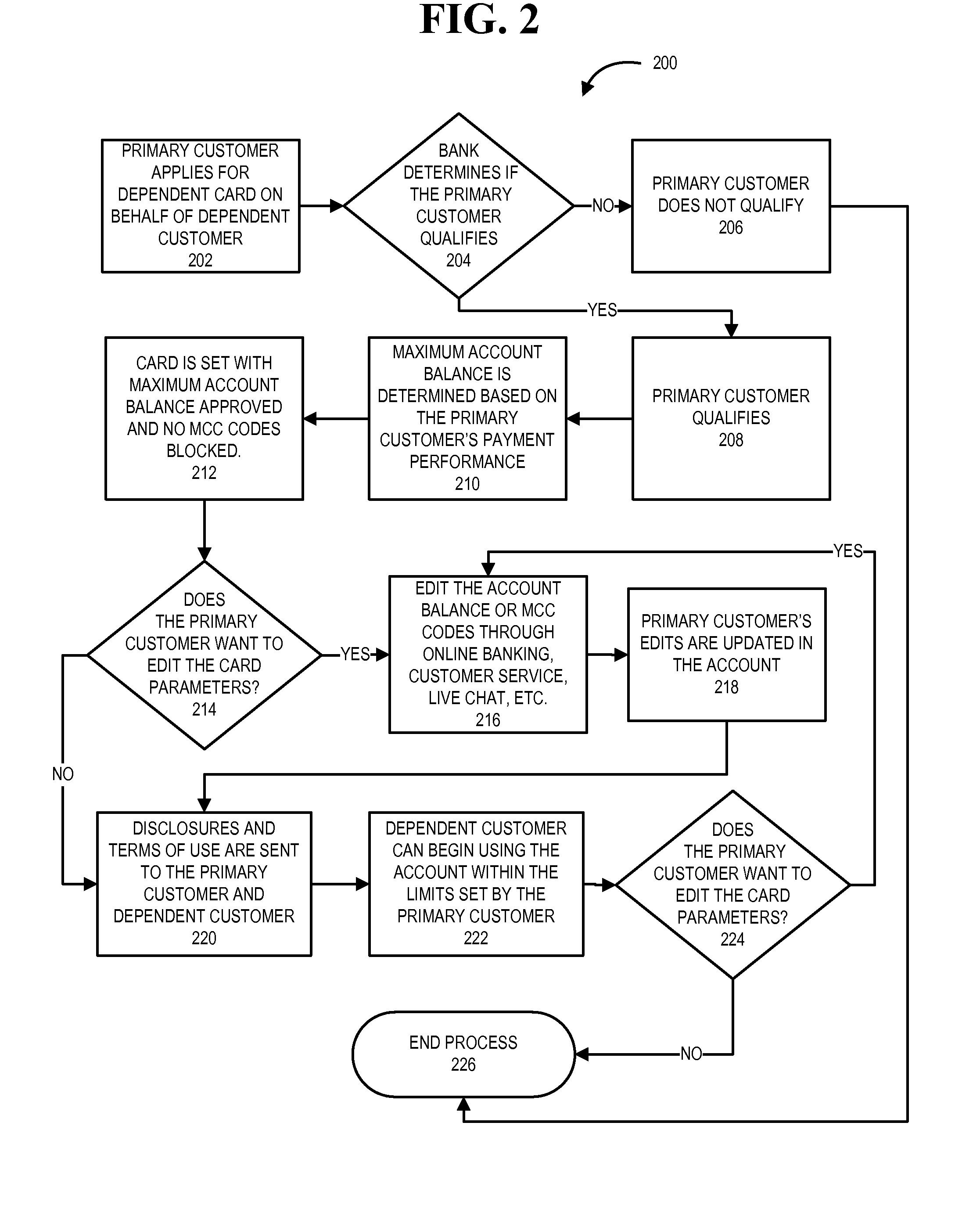Dependent payment device
a payment device and independent technology, applied in the field of payment devices, can solve the problems of limiting the credit that customers can receive, difficult for people with poor or no credit history to obtain a credit card, and difficult for people with poor or no credit history to be approved
- Summary
- Abstract
- Description
- Claims
- Application Information
AI Technical Summary
Benefits of technology
Problems solved by technology
Method used
Image
Examples
Embodiment Construction
[0024]Embodiments of the present invention will now be described more fully hereinafter with reference to the accompanying drawings, in which some, but not all, embodiments of the invention are shown. Indeed, the invention may be embodied in many different forms and should not be construed as limited to the embodiments set forth herein; rather, these embodiments are provided so that this disclosure will satisfy applicable legal requirements. Like numbers refer to like elements throughout. Although some embodiments of the invention described herein are generally described as involving a “bank,” one of ordinary skill in the art will appreciate that other embodiments of the invention may involve other businesses or financial institutions that take the place of or work in conjunction with the bank to perform one or more of the processes or steps described herein as being performed by a bank. Still in other embodiments of the invention the bank or financial institution described herein m...
PUM
 Login to View More
Login to View More Abstract
Description
Claims
Application Information
 Login to View More
Login to View More - R&D
- Intellectual Property
- Life Sciences
- Materials
- Tech Scout
- Unparalleled Data Quality
- Higher Quality Content
- 60% Fewer Hallucinations
Browse by: Latest US Patents, China's latest patents, Technical Efficacy Thesaurus, Application Domain, Technology Topic, Popular Technical Reports.
© 2025 PatSnap. All rights reserved.Legal|Privacy policy|Modern Slavery Act Transparency Statement|Sitemap|About US| Contact US: help@patsnap.com



